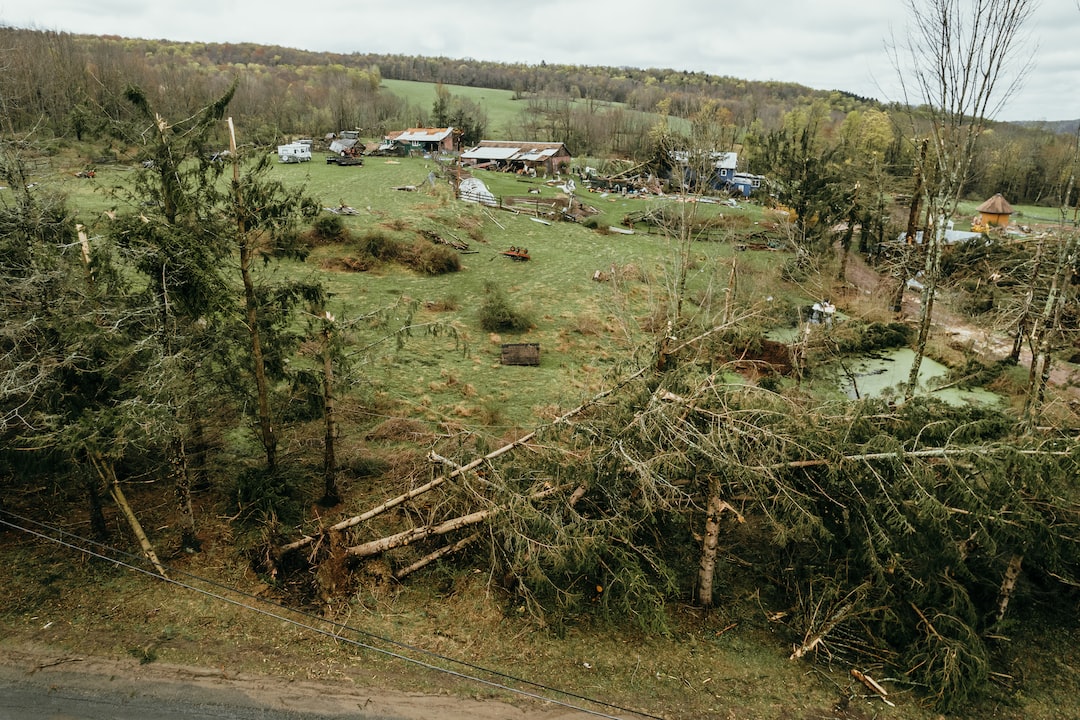Introduction to Property Claim Adjusters
Are you overwhelmed by the complexities of property insurance claims following damage to your property? Insurance claims can be a labyrinth of terminology, paperwork and judgement calls on the value of your claim – all of which can seem daunting when also managing repairs or even a relocation. A key player in navigating this process is the property claim adjuster.
First, you need to understand that there are three types of property claim adjusters for real estate property insurance policyholders dealing with home or business damages caused by fire, hail, windstorm, lightning, smoke, vandalism, flood, hurricane, tornado, explosion, business interruption or other type of loss.
- Company Adjusters
- Most states license these individuals who are employed by a single insurance company.
- These adjusters work exclusively for the insurance company.
- Their goal is to limit the insurance company’s liability.
2. Independent Adjusters - Independent adjusters typically have contracts with multiple insurers in one region.
- These adjusters also work exclusively for the insurance company.
- Their goal is also to limit the insurance company’s liability.
3. Public Insurance Adjusters
- State licensed representatives for policyholders who seek equal footing in negotiating a fair and prompt settlement with their insurance company.
- Public insurance adjusters, like our team at Insurance Claim Recovery Support (ICRS) work exclusively for policyholders, never the insurance company.
- Our goal is to get policyholders the maximum settlement they deserve in minimum time while avoiding unnecessary delays, underpayments, wrongful denials, appraisals and litigation.
As a property owner, it’s your right in Texas and most other states in the U.S. to hire a public adjuster to assist you in the claims process.
If you’ve ever been deeply disappointed with the results of a property insurance claim in Texas, Colorado, Florida, Oklahoma, or just about anywhere else in the U.S. that you handled on your own, you know how long and hard that journey is on your own. The time savings alone that a good public adjuster provides can be invaluable in settling your claim!
Are Public Insurance Adjusters Free?
No. Nothing in life worth any value is free. Price is what you pay, value is what you get. ICRS Public insurance adjusters have invested over a decade of successful strategies and processes that have a proven track record for great results. The time, expertise, and process required to properly prepare and document a Pro-Policyholder claim package that supports your position to trigger full, fair, and reasonable coverage on your behalf in a timely matter is no small task.
Generally, the fees for public insurance adjusters in Texas are capped at 10% of the proceeds of the claim after your deductible. If you want to obtain the best possible settlement in the shortest amount of time, read on.
Adjusters who work on behalf of insurance companies are known as Company Adjuster, Staff Adjuster, Independent Adjuster, General Adjuster, Inside Adjuster, Field Adjuster, Catastrophe (CAT), or Daily Claims adjuster carries out on-site investigations into property damage claims. These adjusters work for the insurance company paying the claim. They will review what happened and estimate the claims payment. Their role involves inspecting the damage, reviewing police and fire reports, speaking to witnesses and property owners to gain detailed insights into the claim. The decisions made by these professionals can significantly impact both the compensation amount you receive, and the duration of the claim process making them a key figure in the insurance industry.
Despite their importance, property claim adjusters often work in a challenging environment, managing multiple cases at once which can often result in a stressful job. This nature of work, paired with the responsibility of bridging the gap between policyholders and insurance companies, highlights their vital role within the industry. Additionally, property claim adjusters may be faced with ethical conflicts of interest between doing what is best for their employer vs. the policyholder.
Other Adjusters vs. Public Insurance Adjusters
If you don’t have a public adjuster on your claim, then the adjusters on your claim are paid by insurance companies to adjust the claim on their behalf, whereas ‘public adjusters’ work exclusively for the insurance policyholder. ‘Public Adjusters’ help policyholders with many of the complex provisions and processes involved with a typical insurance property claim.
What is a Public Adjuster?
A public insurance adjuster (PIA) is a private, independent, licensed, bonded, and professional claims adjuster who settles property damage insurance claims exclusively on behalf of the policyholder. Public adjusters are the only type of claims adjuster that can…
- Legally interpret policy
- Negotiate insurance settlements
- Represent the rights of an insured
Aside from attorneys and the broker of record.
Policyholders may hire a public adjuster to help settle an insurance claim on their behalf. Public adjusters only represent the interests of the policyholder…not your insurance company.
Public adjusting services include strategic risk management advice, thorough investigation, communicating, corresponding, meeting, and negotiating with your insurers’ representatives on your behalf.
A good Public Adjuster (PA) can be a valuable resource for policyholders who are dealing with a large property damage insurance claim.
Here’s a quick overview of what a property claim adjuster does:
- They visit the damaged property to assess the situation.
- They collect relevant details and evaluate property damage to determine coverage.
- Based on their assessment, they decide on coverage and payouts.
- Their job requires them to manage multiple cases simultaneously and work under pressure.

Understanding the role of a property claim adjuster is a crucial first step in making an insurance claim. Join us as we delve into the ins and outs of the job in our guide below.
Duties of good faith and fair dealing include:
- The insurance company and its representatives must treat its policyholder’s interests with equal regard as it does its own interests. This is not supposed to be an adversarial process;
- The insurance company and its representatives should assist the policyholder with the claim;
- The insurance company and its representatives must disclose to its insured all benefits, coverages and time limits that may apply to the claim;
- The insurance company and its representatives must conduct a full, fair and prompt investigation of the claim at its own expense;
- The insurance company and its representatives must fully, fairly and promptly evaluate and adjust the claim;
- The company may not deny a claim or any part of a claim based upon insufficient information, speculation or biased information;
- If full or partial denial, Company must give a written explanation, pointing to the facts and policy provisions;
- The insurance company and its representatives must not misrepresent facts or policy provisions;
- Company may not make unreasonably low settlement offers;
- An insurer must adopt and implement reasonable standards for the prompt evaluation of claims;
- In evaluating a claim under a replacement cost policy it is not proper for an insurer to deduct deprecation from the value of the claim;
- Failure to fairly and reasonably investigate a claim does not permit the company to deny the claim due to lack of information or one-sided information;
- An insurance company may not ignore evidence which supports coverage.
- If denied, must promptly give the policyholder a reasonable explanation of the basis in the insurance policy in relation to the facts, policy provisions or applicable law upon which it relies for denial of claim;
- If an offer is a compromise amount, must provide a reasonable explanation of the basis of that amount in the insurance policy in relation to the facts and law;
- Cannot discriminate in the claim settlement practices based on the claimant’s race, gender, income, religion, sexual orientation, national origin, or physical disability or the territory of the property or person insured;
- Cannot attempt to settle a claim for an unreasonably low amount;
- An insurer must communicate with its insured to keep it appraised of the status of its claim;
- It is improper for an insurer to tie in any manner claim personnel compensation to claim decisions or payments to its insureds;
- An insurer has a duty to disclose all significant facts to its insured;
- An insurance company must not misrepresent facts or policy provisions relating to coverage of an insurance policy;
- An insurance company must not fail to acknowledge and act promptly upon communications regarding a claim arising under an insurance policy;
- An insurance company must adopt and implement reasonable standards for prompt investigation of claims;
- An insurance company must not refuse to pay a claim without a reasonable investigation of all of the available information and an explanation of the basis for denial;
- When insureds don’t recognize they are entitled to benefits in a policy, an insurance company’s obligation is to point out those policy benefits to them;
- An insurance company cannot deny a claim or refuse partial payment on a claim without first conducting a full, a fair, a thorough investigation of the facts and circumstances;
- An insurance company may not use the claims department as a profit center; and
- The insurance company must keep a total claims file that reflects all activity on a file.
These listed good faith duties are taught and explained in the insurance industry. In most cases when we are forced to get involved, we find that these rules of adjustment have been broken and are the cause of our client’s problems. Good insurance companies strive to make certain these rules are never broken.
Understanding the Job of a Property Claim Adjuster
A property claim adjuster holds a pivotal role in the insurance claim process. They serve as the bridge between policyholders and insurance companies, ensuring fair and prompt settlements following a property damage incident. The job scope of a property claim adjuster is extensive, encapsulating tasks from detailed investigations to decision-making.
Detailed Investigation into the Claim
A property claim adjuster is assigned to each insurance claim to conduct a comprehensive investigation. The adjuster begins by visiting the site of the damaged property for an on-site inspection. They then gather all the relevant details pertaining to the incident/occurrence, which can include interviewing the claimant and witnesses, as well as reviewing police reports if applicable. The aim is to ascertain the extent of the property damage and the circumstances that led to it. This information lays the foundation for determining the validity of the claim and the amount of coverage to be provided.
Inspecting the Damage
The adjuster’s next task is to inspect the property damage in person. This step is crucial as it provides first-hand information about the extent and nature of the damage. The adjuster will typically take photographs or videos of the damage for further examination and documentation. This meticulous documentation is essential for negotiating with insurance companies effectively.
Reviewing Police and Fire Reports
In certain cases, the adjuster will also review fire and police reports, especially if the damage resulted from a criminal act or a traffic accident. These reports provide an objective account of the incident and can help validate the policyholder’s claim.
Speaking to Witnesses
If there were witnesses at the time of the incident, a property claim adjuster would interview them to gather additional insights and perspectives. Witness accounts can provide valuable context and details that may not be readily apparent from inspecting the damage or reading police reports.
Talking to Property Owners
Finally, the property claim adjuster will speak directly to the property owners. Their aim is to understand the owner’s perspective of the incident and the resulting damage. This dialogue can help clarify any discrepancies and ensure that the adjuster has all the necessary details to make an informed decision on the claim.
In conclusion, the role of a property claim adjuster is multifaceted and involves various tasks aimed at ensuring a thorough and fair investigation into property damage claims. At Insurance Claim Recovery Support, we understand the complexities involved and are here to guide policyholders through the process, ensuring that your interests are represented effectively.
The Stressful Nature of Property Claims Adjusting
The role of a property claim adjuster is not just complex, but can also be quite stressful. The nature of the job demands long hours, dealing with distressed clients, and often working in challenging environments.
Challenges Faced by Property Claim Adjusters
A property claim adjuster often finds themselves in the middle of emotionally charged situations. They are dealing with policyholders who have just experienced a potentially catastrophic event, such as a fire or a storm, that has damaged their property. This in itself can make the job quite stressful.
In addition, the sheer volume of work during peak claim seasons can be overwhelming. Property claim adjusters often have to juggle multiple claims at once, each requiring a detailed investigation and a thorough understanding of complex policy language.
Another challenge is dealing with disputes that may arise in the claim process. Property claim adjusters are tasked with interpreting the policy terms, assessing the damage, and determining the amount payable. Disagreements between the policyholder and the insurance company over these issues can lead to stressful negotiations and potential litigation.
Coping Mechanisms for Stress in the Field
Despite these challenges, property claim adjusters have developed coping mechanisms to manage the stress in their field. One key aspect is good time management. By effectively prioritizing tasks and managing their time, adjusters can handle the workload without feeling overwhelmed.
Another important coping mechanism is communication and empathy. By effectively communicating with policyholders and showing empathy for their situation, property claim adjusters can help alleviate some of the stress associated with the claims process. This not only helps the policyholders feel understood and supported, but it can also make the job more rewarding for the adjusters themselves.
At Insurance Claim Recovery Support, public adjusters, we emphasize the importance of self-care and maintaining a healthy work-life balance. Taking time to unwind, pursuing hobbies, and ensuring a healthy lifestyle can significantly help in managing stress levels.
In conclusion, while the job of a property claim adjuster can indeed be stressful, with the right coping mechanisms and a supportive work environment, it can also be an incredibly rewarding career. Achieving a balance between the challenges and rewards of the job is key to succeeding in this field.
The Process of Property Insurance Adjustment
After a damaging event, the process of property insurance adjustment helps determine the compensation you should receive under your policy. This process can be complex and overwhelming, especially for policyholders experiencing this for the first time. As experts in this field, we at Insurance Claim Recovery Support are here to guide you through each step.
Initial Damage Assessment
The first step in the property insurance adjustment process is the initial damage assessment. This involves an in-depth examination of the damage caused to your property. A property claim adjuster, acting on behalf of your insurance company, will typically visit your property to conduct this examination.
During the visit, the adjuster will inspect the property damage, review relevant documents like police reports, and speak to witnesses if necessary. They will also talk with you, the property owner, to gather all the necessary information. This detailed investigation helps the adjuster understand the extent of damage and the circumstances that led to it.
Determining the Settlement Amount
Once the initial damage assessment is complete, the adjuster will use the collected information to determine the settlement amount. This is where the adjuster’s expertise in estimating property damage and understanding insurance policy terms comes into play. The adjuster’s assessment is instrumental in determining the initial settlement offer presented by the insurance company.
However, it’s important to remember that this initial offer is often lower than the actual value of the claim. You should always consult a professional before accepting it. This is where a public adjuster or a property damage lawyer, like our team at Insurance Claim Recovery Support, can be invaluable. We can help you negotiate a fair settlement, ensuring you receive the fullest compensation possible.
Reimbursement for Repairs
After a settlement amount is agreed upon, the payout process begins. You can expect to receive a check from your insurance company for the actual cash value of the damaged items. This is the first part of your reimbursement for repairs.
If you have a mortgage, the check for repairs may be made out to both you and the mortgage lender. Once you replace the damaged belongings and provide the receipts to your insurer, you can receive the remainder of your personal property settlement.
Although insurance claim adjusting can be a complex process, you don’t have to navigate it alone. Whether you’re dealing with the aftermath of a flood, fire, or other disaster, we at Insurance Claim Recovery Support are here to help you every step of the way.
Becoming a Property Claim Adjuster
Deciding to become a property claim adjuster is a decision to embark on a challenging yet rewarding career path. This role requires not only a deep understanding of insurance policies but also a commitment to helping policyholders navigate the often complex insurance claim process.
Educational Requirements and Work Experience
To become a property claim adjuster, typically, a high school diploma or GED equivalent is the minimum educational requirement. However, possessing a degree in insurance, finance, or a related field can give you an edge. What truly matters is your understanding of insurance policies and regulations, as well as your ability to handle claims effectively. In some states, insurance adjusters are not required to be licensed at all.
In terms of work experience, it varies. Some positions could require insurance-related work experience, while others might provide on-the-job training for entry-level positions.
Licensing and Training for Property Claims Adjusters
Becoming a licensed property claim adjuster requires passing a state-specific exam. For instance, in Texas, an aspiring adjuster has to pass the Texas All Lines Insurance Adjuster exam. The pre-licensing course, designed to provide a comprehensive understanding of insurance policies, regulations, and claim handling procedures, is offered by various claims adjuster training schools like AdjusterPro.
Once you’ve become a licensed property claim adjuster, continuing education is vital to keep your knowledge and skills up-to-date. Many states require adjusters to complete a certain number of continuing education hours to maintain their licenses. At Insurance Claim Recovery Support, we encourage our public adjusters to regularly attend relevant courses and programs to stay abreast of the latest industry trends and regulations.
Salary and Job Outlook for Property Claim Adjusters
The salary of a property claim adjuster can vary depending on your location and experience. According to the Bureau of Labor Statistics, the median annual wage for claims adjusters, examiners, and investigators was $72,230 in May 2022.
While the overall employment of claims adjusters, appraisers, examiners, and investigators is projected to decline by 3 percent from 2022 to 2032, there are still ample opportunities in the field. About 21,500 openings are projected each year over the decade, primarily due to the need to replace workers who transfer to other occupations or exit the workforce.
In conclusion, becoming a property claim adjuster is a fulfilling career choice that directly impacts people’s lives. It requires education, licensure, and a commitment to continuous learning. As property claim adjusters, we at Insurance Claim Recovery Support strive to provide the best service to our clients, helping them recover from unexpected property damage and return to normalcy.
Property Claim Adjusters in Texas: A Case Study
Role of Property Claim Adjusters in Texas Fire and Storm Damage
In the vast expanse of Texas, with its diverse weather conditions, property claim adjusters face a wide range of challenges. From the hail and tornado damage in cities like Austin and Dallas to the hurricane-induced flooding in coastal cities like Houston and San Antonio, their expertise is constantly put to the test.
For instance, in Austin and Dallas, property claim adjusters often deal with the aftermath of hail and tornado damage. Their job involves assessing and documenting everything from toppled buildings to uprooted trees. In coastal cities like Houston and San Antonio, they are tasked with evaluating damage caused by hurricanes and subsequent flooding. This includes understanding the complexities of windstorm and hail damage insurance, which many businesses in these areas need to purchase separately from their standard commercial property insurance.
In West Texas cities like Lubbock and Waco, wildfires pose a significant threat. Here, property claim adjusters need to be knowledgeable about different types of fire damage and the appropriate methods for assessing and documenting such damage.
How Public Adjusters Assist Policyholders in the Insurance Claim Process
At Insurance Claim Recovery Support, we understand the stress and frustration that often come with filing insurance claims. As public insurance adjusters, we help our policyholder clients navigate through this process, ensuring they get the settlement they deserve for damages to their property and any business interruption income losses sustained.
We conduct detailed investigations into claims, inspect damages, document damages, estimate repair scope and costs, interpret policy language, make recommendations, meet with your insurer’s representatives, review police/fire reports, speak to witnesses, talk to property owners, compel insurers to perform, assist policyholders in meeting their burden of proof and ultimately negotiate a fair settlement. Our goal is to make the insurance claim process as smooth and stress-free as possible for our clients. We document, negotiate, and settle insurance claims with our client’s needs in mind, ensuring that all visible and hidden damage is accounted for in their claim.
Notable Public Insurance Adjuster Firms in Texas Cities (Austin, Dallas, Fort Worth, San Antonio, Houston, Lubbock, San Angelo, Waco, Round Rock, Georgetown, Lakeway)
In Texas, Insurance Claim Recovery Support stands out as a notable public adjusting firm with a team of skilled property damage insurance claim adjusters. We serve major cities across the state, including Austin, Dallas, Fort Worth, San Antonio, Houston, Lubbock, San Angelo, Waco, Round Rock, Georgetown, and Lakeway.
Using our extensive experience and expertise, we’ve successfully settled hundreds of millions in insurance large and complex property damage insurance claims exclusively on behalf of policyholders. This includes cases of fire damage, hail damage, hurricane damage, and tornado damage. Our commitment to professional documentation, representation, and negotiation skills ensure our clients avoid unnecessary delays, underpayments, and litigation.
In conclusion, the role of a public adjuster is crucial in navigating the complexities of insurance claims, especially in a state as diverse as Texas. As public adjusters, we at Insurance Claim Recovery Support are committed to helping our clients recover from unexpected property damage and return to normalcy as quickly and smoothly as possible.
Conclusion: The Value of a Public Adjuster in Navigating Insurance Claims
Navigating the labyrinth of insurance claims following property damage can feel like a Herculean task. This is where the expertise of a property claim adjuster becomes invaluable. They bring a deep understanding of the insurance industry, technical knowledge, and strong negotiation skills to the table. The role of a public adjuster is to represent the interests of the insured in bridging the gap between policyholders and insurance companies, ensuring a fair settlement for the insured.
A public adjuster’s findings are often different than the insurance company representatives and their efforts can significantly influence the payout amount and length of the claim process. The work is challenging and often stressful, as they handle multiple cases simultaneously and work under pressure. Yet, they remain committed to their mission of helping clients receive a fair settlement for their insured damages.
At Insurance Claim Recovery Support, we understand that the insurance claim process can be overwhelming, especially when you are trying to manage damage repairs or possible relocation. Our team of experienced property claim adjusters is here to help. We ensure that your rights are protected and work tirelessly to get you the settlement you deserve.
As a property owner, it’s essential to remember that insurance companies have experts working for them. It’s equally important for you to have an expert on your side. Our licensed advocates are here to fight for your full policy benefits, provide professional documentation to support your claim, and offer peace of mind. We handle the complexities so you can focus on getting back to your normal life.
To learn more about how we can assist with your property damage insurance claim, visit our high-value homes and commercial property public insurance adjusters pages. We have a wealth of resources to help you understand the insurance claim process and how our services can be invaluable in your recovery.
In conclusion, hiring a public adjuster is not just about getting a fair settlement, but also about reducing stress, saving time, and ensuring a more efficient recovery process. In the face of property damage and loss, a good public insurance adjuster is your trusted partner in the pursuit of a fair and prompt settlement.










